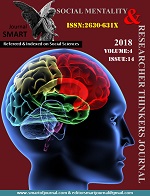Beden Eğitimi Öğretmenlerinin Öğretmenlik Mesleğiyle İlgili Mesleki Önceliklerinin Saptanması Üzerine Bir Araştırma
Author :
Abstract
Bu araştırma, ideal bir beden eğitimi öğretmeninin sahip olması gereken genel kültür, öğretmenlik meslek bilgisi ve özel alan bilgisi alanlarında hangi özelliklerin öncelikler arasında yer almakta olduğunu belirlemek amacıyla yapılmıştır.. Elde edilen bulgularla öğretmen yetiştirmeyle ilgili programların geliştirilmesine katkı sağlamakta amaçlanmaktadır. Bu çalışmanın örneklem grubunu toplam 174 gönüllü beden eğitimi öğretmeni oluşturmaktadır. Veri toplama aracı olarak 5’li likert tipi bir anket uygulanmıştır. Araştırma sonucunda, genel kültür alanında; Türk Ulusunun milli, ahlaki, insani, manevi ve kültürel değerlerini benimseme, koruma ve geliştirmenin (% 98.8) , Türkçeyi iyi bilme açık anlaşılır ve yalın bir biçimde kullanmanın (% 97.7) öncelikler arasında ilk sıralarda yer aldığı belirlenmiştir. Meslek bilgisi alanında ise; (% 83.9) ‘ ile öğretmenliği benimseme, sevme ve zevk almanın, Alan Bilgisi alanında da etkinlikler ve grupları organize etme ve yönetme bilgi ve becerisine sahip olmanın (% 93.7) öncelikli konular olduğu saptanmıştır.
Keywords
Abstract
The aim of this study to determine the points of view of the physical education teachers, who still work, about what kind of features an ideal physical education teacher might have and to specify which features become prominent when ordering the priorities in every three sub-dimensions (General Information, Teaching Profession Knowledge and Special Field Knowledge). It is aimed at contributing to the curriculum planning for teacher training with the findings obtained in this study. The sample group of this study consists of total 174 volunteer physical education teachers. A survey of 5 point likert type is applied as data gathering means. As a result of this study, in the field of Professional General Information, the acceptance, protection and development of the National, Moral, Humanitarian and Cultural values of the Turkish Nation (98.8%) and familiarity and clear or comprehensible use of Turkish language (97.7%) take place on the top among the priorities. It is seen that, in Professional Knowledge, taking pleasure in teaching and adopting this profession (83.9%), and in the Field Knowledge, organizing the activities and groups and acquiring management knowledge and skill (93.7%) come to the front.
Keywords
- Akyüz, Y. (1973). Türkiye de Öğretmelerin Toplumsal Değişimindeki Etkileri, Doğan Basımevi,
- Akyüz, Y. (1973). Türkiye de Öğretmelerin Toplumsal Değişimindeki Etkileri, Doğan Basımevi, Ankara.
- Balcı, A. (1993). Etkili Okul, Yavuz Dağıtım, Ankara.
- Bucher, A.C. (1979). Foundations of Physical Education, The C.V. Mosby Company, USA.
- Çetin, Ş. (2001). “İdeal Öğretmen Üzerine Bir Araştırma”, Millî Eğitim Dergisi, Sayı. 149.Darling-Hammond, L. (2002). Research and rhetoric on teacher certification: A response to “Teacher certification reconsidered”, Education Policy Analysis Archives, 10(36), 1–6.
- David, K. (2009). Physical Education Futures, ISBN: 978-0-415-54993-6 Hardback Routledge
- Demirel, Ö., Kaya, Z. (Editör), Yılman, M. ve ark (2001). Öğretmenlik Mesleğine Giriş, Pegem Yayıncılık, Ankara.
- Demirhan, G. & Açıkada, C. (1997). “Türkiye ve Avrupa Ülkelerinde Beden Eğitimi ÖğretmeniYetiştiren Bazı Yüksek Öğretim Kurumlarının Öğrenci, Öğretim Elemanı ve Dersler Boyutuyla Karşılaştırılması”, Spor Bilimler Dergisi, 8(2), 4-25.
- Ertürk, S. ( 1979 ). Eğitimde program Geliştirme, Yelkentepe Yayınları, Ankara.Erden, M, (1998). Öğretmenlik Mesleğine Giriş. Alkım yayınları, İstanbul.
- Goodings, R., Byram, M. & Mc Partland, M. (1982). “Changing Priorities in Teacher Education”, Taylor & Francis, ISBN: 0709911300.
- Goe, L. (2007). “The Link Between Teacher Quality And Student Outcomes: A ResearchSynthesis, A Report from the National Comprehensive Center for Teacher Quality (NCCTQ).
- Hess, F. M. (2001). “Teardown The Wall: The Case for A Radical Overhaul of TeacherCertification”. Washington, DC: Progressive Policy Institute.http://www.ppionline.org/ppi_sub.cfm?knlgAreaID=110&subsecID=13518. Şubat 2018 tarihinde indirilmiştir.
- Laminack, L. L. & Long, B. M. (1985). “What Makes A Teacher Effective” Inside from preservice teachers. Clearing House, 58(268).
- M.E.B. (2002). Öğretmen Yeterlikleri. Milli Eğitim Basımevi. Ankara.
- M.E.B. (2005). Öğretmenlik Mesleği Genel Yeterlikleri, http://oyegm.meb.gov.tr/yet/ 12 Mart 2018 tarihinde indirilmiştir.
- Pearson, A.T. (1989). The Teacher, Theory and Practice in Teacher Education, Routledge, London.
- Rice, J. K. (2003). “Teacher Quality: Understanding The Effectiveness of Teacher Attributes”, Washington, DC: The Economic Policy Institute.
- Sezgin, İ. (1987). Gazi Üniversitesi Sempozyumu, 8-11 Haziran, Ankara.
- Sönmez, V. (2003). “Eğitimin Tarihsel Temelleri” (Ed. Veysel Sönmez), Öğretmenlik Mesleğine Giriş. Anı Yayıncılık, Ankara.
- Yetim, A. & Göktaş, Z. (2004). “Öğretmenin Mesleki ve Kişisel Nitelikleri”, Kastamonu Eğitim Dergisi, 12(2).
- Walsh, K. (2001). “Teacher Certification Reconsidered: Stumbling For Quality”. Baltimore, MD:The Abell Foundation. http://www.abell.org/publications/detail.asp?ID=59 adresinden 08 kasımWayne, A. J. & Youngs, P. (2003). “Teacher characteristics and student achievement gains: A review”. Review of Educational Research, 73, 89–122.





